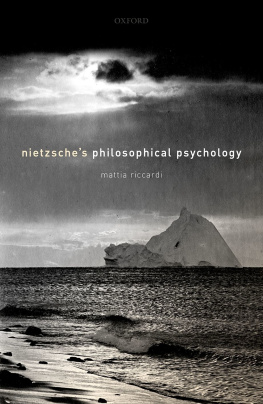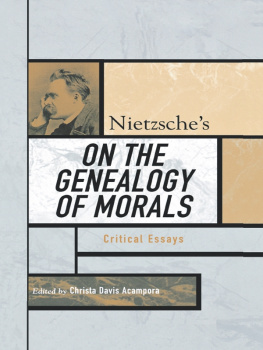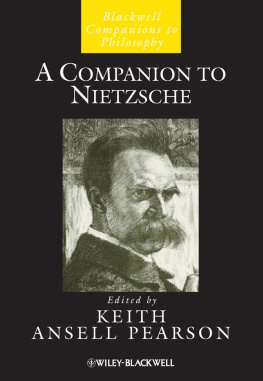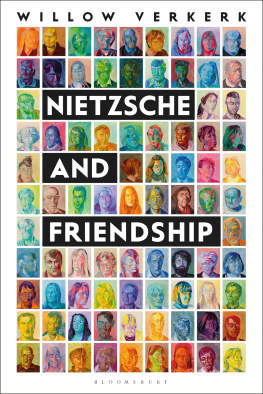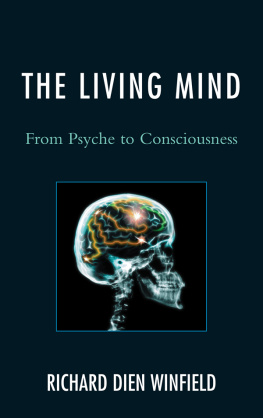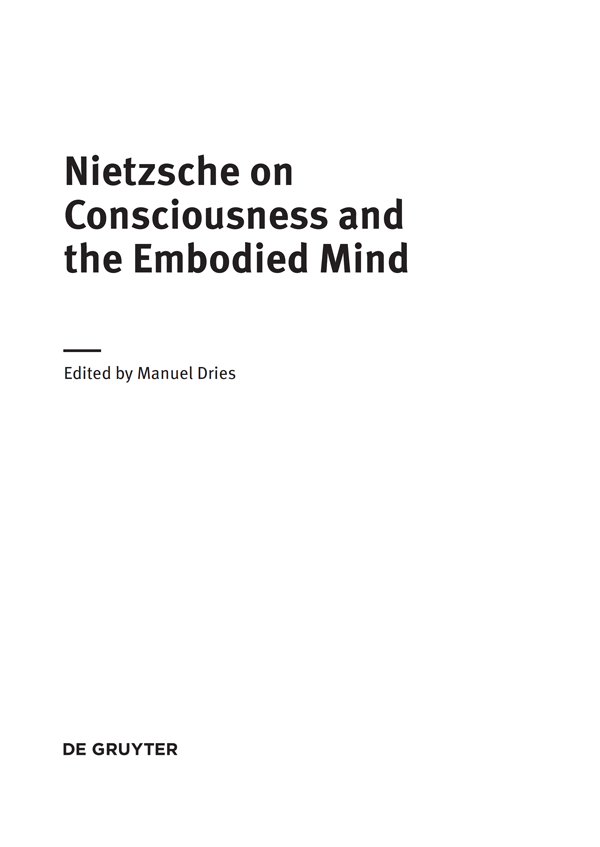Manuel Dries (editor) - Nietzsche on Consciousness and the Embodied Mind
Here you can read online Manuel Dries (editor) - Nietzsche on Consciousness and the Embodied Mind full text of the book (entire story) in english for free. Download pdf and epub, get meaning, cover and reviews about this ebook. year: 2018, publisher: De Gruyter, genre: Science. Description of the work, (preface) as well as reviews are available. Best literature library LitArk.com created for fans of good reading and offers a wide selection of genres:
Romance novel
Science fiction
Adventure
Detective
Science
History
Home and family
Prose
Art
Politics
Computer
Non-fiction
Religion
Business
Children
Humor
Choose a favorite category and find really read worthwhile books. Enjoy immersion in the world of imagination, feel the emotions of the characters or learn something new for yourself, make an fascinating discovery.
- Book:Nietzsche on Consciousness and the Embodied Mind
- Author:
- Publisher:De Gruyter
- Genre:
- Year:2018
- Rating:4 / 5
- Favourites:Add to favourites
- Your mark:
Nietzsche on Consciousness and the Embodied Mind: summary, description and annotation
We offer to read an annotation, description, summary or preface (depends on what the author of the book "Nietzsche on Consciousness and the Embodied Mind" wrote himself). If you haven't found the necessary information about the book — write in the comments, we will try to find it.
Nietzsches thought has been of renewed interest to philosophers in both the Anglo- American and the phenomenological and hermeneutic traditions.Nietzsche on Consciousness and the Embodied Mindpresents 16 essays from analytic and continental perspectives. Appealing to both international communities of scholars, the volume seeks to deepen the appreciation of Nietzsches contribution to our understanding of consciousness and the mind.Over the past decades, a variety of disciplines have engaged with Nietzsches thought, including anthropology, biology, history, linguistics, neuroscience, and psychology, to name just a few. His rich and perspicacious treatment of consciousness, mind, and body cannot be reduced to any single discipline, and has the potential to speak to many.And, as several contributors make clear, Nietzsches investigations into consciousness and the embodied mind are integral to his wider ethical concerns.
This volume contains contributions by international experts such as Christa Davis Acampora (Emory University), Keith Ansell-Pearson (Warwick University), Joo Constncio (Universidade Nova de Lisboa), Frank Chouraqui (Leiden University), Manuel Dries (The Open University; Oxford University), Christian J. Emden (Rice University), Maria Cristina Fornari (University of Salento), Anthony K. Jensen (Providence College), Helmut Heit (Tongji University), Charlie Huenemann (Utah State University), Vanessa Lemm (Flinders University), Lawrence J. Hatab (Old Dominion University), Mattia Riccardi (University of Porto), Friedrich Ulfers and Mark Daniel Cohen (New York University and EGS), and Benedetta Zavatta (CNRS).
Manuel Dries (editor): author's other books
Who wrote Nietzsche on Consciousness and the Embodied Mind? Find out the surname, the name of the author of the book and a list of all author's works by series.




